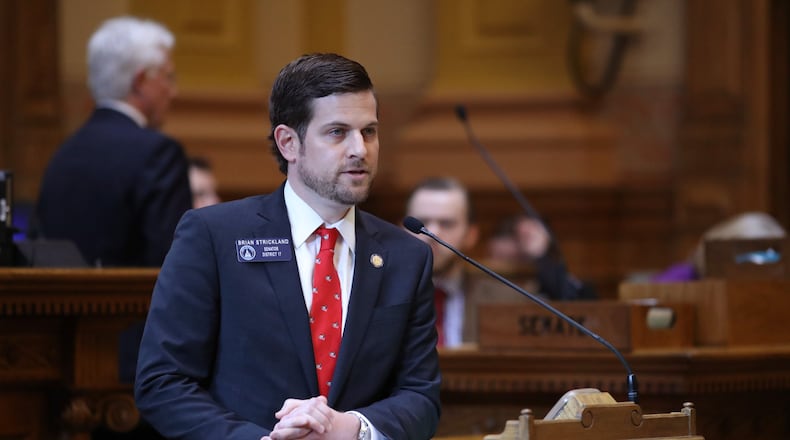A push for state funds to be used for private school tuition and school expenses has increased odds of passing this year as both chambers of the Georgia General Assembly consider nearly identical bills that have the support of Gov. Brian Kemp’s floor leaders.
The House of Representatives was the first to file what public school advocates are labeling a "voucher" bill, but on Thursday, the Senate became the first to push one through the committee process.
Senate Bill 173 was introduced Friday, assigned to a committee Monday and given a pass out of that GOP-controlled committee Thursday in a 9-3 vote along partisan lines.
If either bill becomes law, it’ll be the first time that the general population of public school students would be eligible to go to a private school with a tuition subsidy straight from the state.
The legislation would establish “scholarship” accounts enabling parents to use the portion of the money their local school district gets from the state. Parents wouldn’t get the cash, but they would get to direct the money to a private school for tuition or to other providers for things such as textbooks and tutoring.
Georgia already has a private school scholarship program, but it is funded by tax credits rather than by direct state payments. There’s also a small direct-payment scholarship program, but it is only for students with learning disabilities.
There's been no financial analysis of the Senate version, but House Bill 301 would require about $48 million in the first year, rising to a maximum of about $543 million in a decade as more students participate.
There would be a cap on the number of accounts. Under the House plan, an estimated 8,700 students would be eligible in year one (2019-20), with that number increasing annually until the cap is reached.
Proponents say it won’t cost the state anything because the money is already allocated for education and is merely following the students from public schools to private.
"So the program is revenue neutral as far as the state is concerned because it's money we're already spending on these students," said Sen. Greg Dolezal, R-Cumming, the lead sponsor of the Senate version.
Public education advocates said the loss of state funding would hurt local schools, though. The Professional Association of Georgia Educators, with more than 90,000 members, has a long-standing objection to “using public dollars for private school vouchers, so that part of the bill does give us pause,” the group’s legislative affairs director, Margaret Ciccarelli, said at a hearing Thursday.
The second signer on the House version is Rep. Jodi Lott, R-Evans, a floor leader for Gov. Brian Kemp, whose office hasn't responded to calls and emails. Another Kemp floor leader, Sen. Brian Strickland, R-McDonough, is the second signer on the Senate bill.
“I signed on behalf of the governor,” he said in an interview Thursday. “My signature on it is a message that the governor supports it.”
About the Author
Keep Reading
The Latest
Featured




